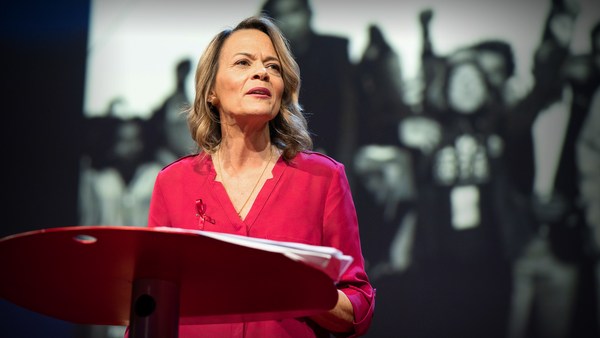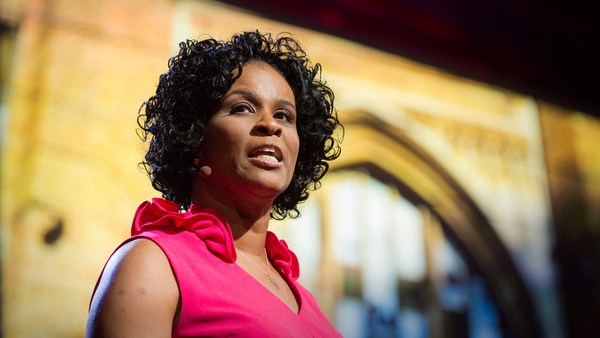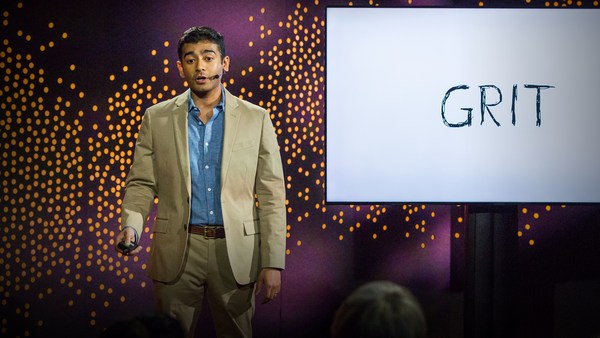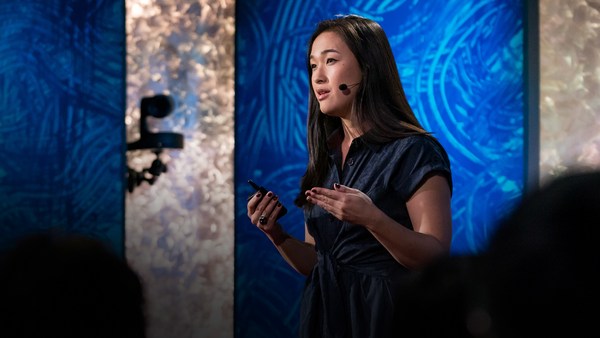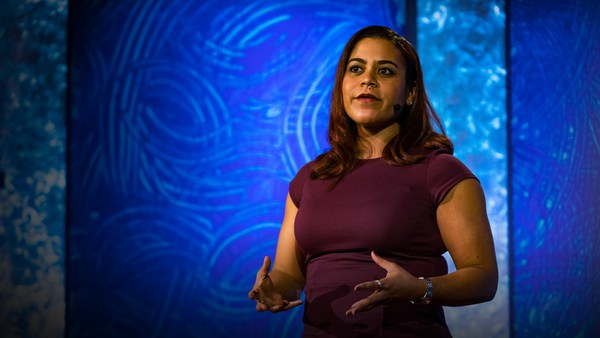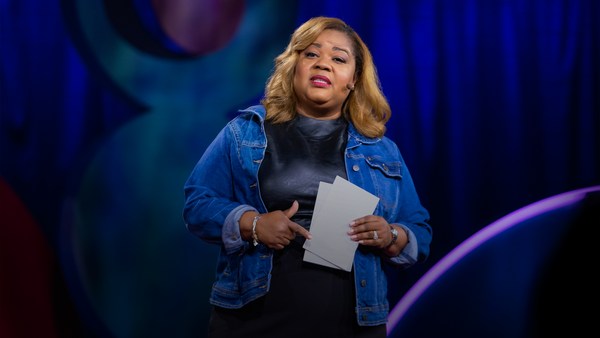To me, social justice is a simple concept. It's the notion that all people in a society deserve fair and equitable rights, opportunities and access to resources. But it's become controversial and nebulous, because we've stopped talking about what working for social justice actually looks like.
Working for social justice can look like this ... or this. It can look like this ... or it can look like this ... or my favorite ... it can look like that. Those are my students, and whenever I'm asked to articulate my work or my priorities as a teacher, I explain that I believe education can be a tool for social justice.
But a few months ago, I logged onto Twitter -- as I do -- and I saw that a fellow teacher had taken issue with that belief. "Teachers," he said, "should not be social justice warriors, because the purpose of education is to educate." And he ended his argument by saying, "I teach my subject." But I reject that simplification, because teachers don't just teach subjects, we teach people.
When our students walk into our classrooms, they bring their identities with them. Everything they experience in our rooms is bound up in historical context, and so if we insist that education happens in a vacuum, we do our students a disservice. We teach them that education doesn't really matter, because it's not relevant to what's happening all around them.
And what's happening all around them? Well, racism for one. According to results of the Implicit Association Test, fully 88 percent of white people harbored subconscious biases against black people, believing them to be less intelligent, lazier and more dangerous than whites. And that's just one concrete example of the insidious effects of historic and systemic racism on our country. For more evidence, we could look at incarceration rates; we could look at statistics on police violence against black people; we could look at the opportunity gap in education -- so yeah, social justice belongs in our schools.
Social justice should be a part of the mission of every school and every teacher in America, if we want "liberty and justice for all" to be more than a slogan ... because schools are crucial places for children to become active citizens and to learn the skills and the tools that they need to change the world.
So what are those skills? OK, here's a secret: many of the skills that people need to orchestrate the kinds of change that will lead to justice are already built into the work of schools. Things like problem-solving, critical thinking, collaboration, perseverance -- none of that should be revolutionary on its own. Combine that with the ability to understand history not as one static and objective narrative on which we all agree, but as a series of intertwined events about which there can be countless interpretations. If we deliberately choose to explore history with our students rather than just teach it, we help them understand that history is ongoing and that it's connected to current movements for justice. And we help them see themselves as potential players within a living history.
So those are the skills I'm talking about when I say that education can be a place to help kids learn how to work for justice. But maybe the reason that my Twitter critic wasn't happy with that idea is because he doesn't agree with my definition of justice. Fair enough. Maybe he and I don't see eye to eye, politically. But here's the thing: our aim is to encourage students to articulate their own opinions, not to coerce them into agreeing with us, so it actually doesn't matter if he and I agree. What matters is that we're helping students have those conversations with each other. And that means that as adults, we need to learn how to become effective facilitators of our students' activism. We've got to help them learn how to have really tricky conversations, we have to expose them to different opinions, and we have to help them see how what they're learning in school connects to the world outside.
So here's an example of that. Every year, my students study the history of apartheid in South Africa as a case study of injustice. Now for those of you who don't know, apartheid was a brutally racist system, and the white-ruled government in South Africa imposed racist laws to oppress people of color, and if you resisted those laws, you risked jail time, violence or death. And around the world, other countries' governments, including ours in the United States, hesitated to sanction South Africa, because ... well ... we benefited from its resources. So in 1976, the South African government passed a new law which required that all students in South Africa learn in the language Afrikaans, which was a white language, and many black South Africans referred to that language as the language of the oppressor. So not surprisingly, students of color were outraged at this law. They already attended segregated schools with overcrowded classrooms, a lack of resources and a frankly racist curriculum, and now they were being told to learn in a language neither they nor their teachers spoke. So on the morning of June 16, 1976, thousands of kids from the township of Soweto walked out of schools. And they marched peacefully through the streets to protest the law. At an intersection, they met up with the police, and when the kids refused to turn back, the police officers set dogs on them ... and then they opened fire ... and the Soweto uprising ended in tragedy.
Apartheid itself didn't end until almost 20 years later, but the activism of those kids in Soweto profoundly changed the way the world viewed what was happening in South Africa. News outlets all around the world published this photo of 13-year-old Hector Pieterson, who was one of the first people killed by police in Soweto, and it became nearly impossible to ignore the brutality of the apartheid regime. In the months and the years that followed the Soweto uprising, more and more countries exerted political and economic pressure on the South African government to end apartheid, and it was largely due to the activism of those kids in Soweto.
So every year my kids learn about this. And invariably, they start to draw connections between those kids in Soweto and themselves. And they start to ask themselves what kind of political power and agency they have. They ask themselves whether there would ever be a reason they would risk their lives so that a future generation could live in a more just world. And most profoundly for me, every single year, they ask themselves whether adults will ever listen to their voices.
A few years ago, my principal got an anonymous email from one of our students. It informed him that the following day, the students planned to walk out of school. This was in the wake of Michael Brown's death in Ferguson, Missouri, and the students were planning to join a walkout and march in support of the Black Lives Matter movement. So at this point, the staff at the school had a decision to make. Would we use our authority and our power to try to control the students and prevent them from leaving, or would we support them as they put into practice the principles of social justice that we had taught them about since the ninth-grade year?
So the next morning, the kids left school en masse and they gathered on the lawn. And one of the seniors jumped up on a picnic table and went over safety expectations.
(Laughter)
And the younger kids took it very seriously. And as teachers and as staff we told them, "OK, be safe," and we watched as they marched off. The kids who chose to stay spent that afternoon in class. They debated the merits of protest, they talked about the history of the Black Lives Matter movement, and they went on with classes as scheduled. And those who chose to leave participated in a citywide student walkout and raised their collective voice for justice. But no matter where they chose to spend the afternoon, our kids learned valuable lessons that day. They learned that the adults in their lives would support them even as we worried for their safety. And they learned that they didn't need us to tell them how or when or even why to protest. They learned that they were members of a community of young people with a shared vision of a more equitable society, and they learned that they had power within that society. They learned that events like the Soweto uprising are not ancient history, and they don't have to end in tragedy. And that's what education as a tool for social justice can look like.
And here's the thing: our kids are ready for this kind of work. So in 2015, incoming college freshmen were surveyed, and 8.5 percent of them said that there was a "very good chance" they would participate in a protest sometime during their college career. That might not seem very impressive, but consider the fact that it's the largest number of students to say that since 1967. And 75 percent of those kids said that helping other people who are having difficulty was a "very important" or "essential" goal for them. Again, the highest number of people to say that since the late 1960s.
And research shows us that working for justice doesn't just follow from building all those skills I talked about earlier -- it actually goes the other way, too. So working for justice, engaging in activism, helps students build skills like leadership and critical thinking, and it correlates positively with their political participation and their civic engagement and their commitment to their communities later in life. So in other words, students are telling us that social justice matters to them and researchers are telling us that it helps students learn. So now it's up to us to listen, and that might not be easy.
In 1976, one of those kids who participated in the Soweto uprising, he said that that event represented divorce between black children and their families, because their families had grown up under apartheid, and they knew how dangerous it was to speak out. They wanted their kids to lay low and stay safe. And when our kids threatened to walk out, a lot of the adults in our community were really conflicted, too. Some of us worried that they might encounter violence. Other people worried that they would walk out but they wouldn't really know why they were protesting. And some, including some students' families, were really angry that the school hadn't done more to prevent them from leaving. And all of those fears that adults have about getting this stuff wrong -- all of those fears make total sense. But despite those fears, we have got to prove to our students that we will listen to their voices and that they do have the power to effect change. It's our responsibility to equip our students with the tools and the skills that they need to insist on a more equitable world -- and then sometimes, to get out of their way, and let them apply those skills to things that they care about.
Living up to that vision is going to require that we are flexible, and it's going to require that we're creative. It's going to require that we're brave enough to stand up in the face of people who try to silence or delegitimize dissenting voices. And hardest of all, it's going to require accepting the fact that sometimes we will be the ones our students will rebel against.
(Laughter)
Sometimes they're going to point out ways in which systems that we have created, or in which we are complicit, contribute to inequity. It's going to be uncomfortable, and it's going to be painful as they push us to question our own assumptions and beliefs. But what if we change the way we think about rebellion in our kids? When our kids rebel -- when they thoughtfully push back against our ideas or the way that we do things, what if we chose to see that as a sign that we're doing something right and that they're becoming liberated? I know it would be easier if their critical thinking skills manifested in more convenient ways -- on their essays or their standardized tests -- I get it -- but convenience and justice do not often go hand in hand. And when our kids learn to think critically about the world around them, they become the kinds of engaged citizens who will recognize and question injustice when they see it and work to do something about it.
Welcoming rebellion into our schools is going to require some rethinking about what teaching and learning look like, because there's this misconception that if we give students any wiggle room, they're going to walk all over us and classrooms and dinner tables will devolve into total chaos. And if we expect kids to sit silently and passively receive knowledge from us, then their voices will always feel overwhelming. But if we accept instead that learning is sometimes messy, that it requires opportunities to brainstorm and mess up and try again, that our kids dislike chaos and want to learn when they come to school, then we can set up schools to facilitate that kind of learning.
So do me a favor and close your eyes for a second and imagine schools where teachers are thought partners, letting students grapple with complex, hard issues and not necessarily giving them the right answers. And imagine schools where we let students make choices -- we trust them enough to do that and we let them experience the consequences of those choices. Imagine schools where we let students be humans, with all of the messiness and the uncertainty that is bound to come with that.
Whatever you just imagined, it's not mythical, it's not unrealistically idealistic, because teachers all over the country are already pushing the boundaries of what teaching and learning can look like with amazing results for kids. They're doing that in all kinds of schools, and there are countless models for teachers who want to get better at helping students learn in a way that's more authentic and engaging and empowering.
I was a reading a book recently, it's called "The Students Are Watching," and it was by Ted and Nancy Sizer, and in that book, they said that the work of education is often described as a series of nouns, like "respect," "honesty," "integrity." And they say those nouns sound really impressive, but often, they fail to actually mean anything in practice. But verbs, they say, are "active, no less demanding but requiring constant engagement. Verbs are not structures but, rather, engines." And so as I read that, I wondered: How do we make justice into an engine driving our work as teachers? What's the verb form of justice? I think there might be an answer to be found in the words of Cornel West, who famously said that "justice is what love looks like in public." And all of my nerdy English teachers in the crowd know that love can be a noun and a verb.
School has to be bigger. It has to mean more than "I teach my subject." School has to be about teaching people to change the world for the better. If we believe that, then teaching will always be a political act. We can't be afraid of our students' power. Their power will help them make tomorrow better. But before they can do that, we have to give them chances to practice today. And that practice should start in our schools.
Thank you very much.
(Applause)
